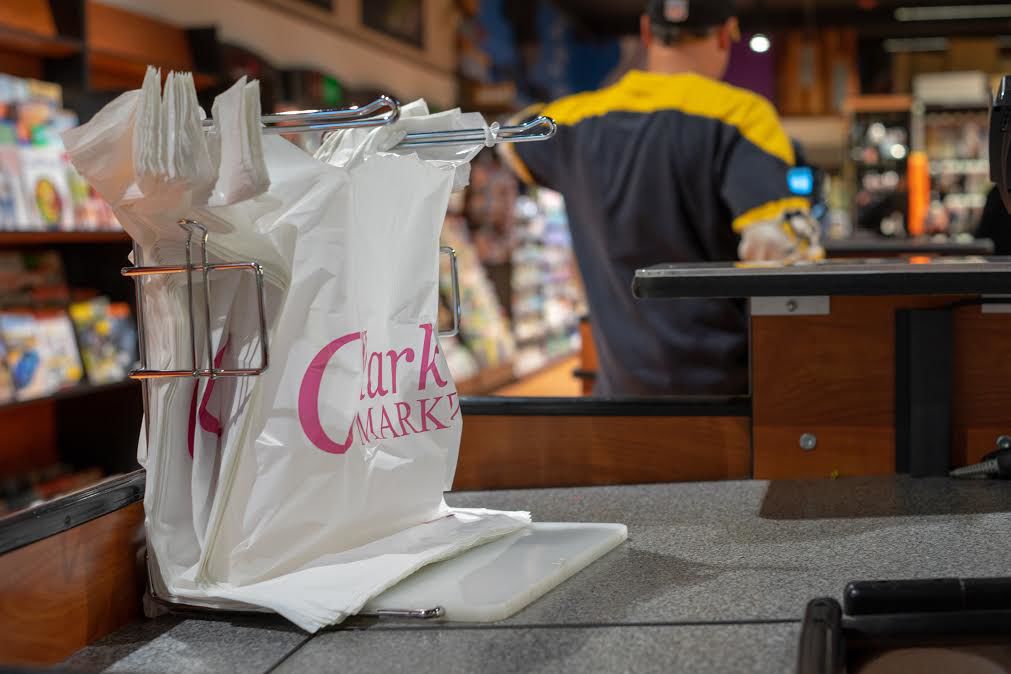Supreme Court upholds Aspen’s grocery bag fee

Aspen City Council banned plastic grocery bags, shown here in a market in Snowmass Village, in 2011, while implementing a 20-cent fee on paper bags. The Colorado Supreme Court on Monday found that the fee was not a tax.
The state high court upheld a district court decision from 2014 and a Colorado Court of Appeals ruling from 2015. The Colorado Union of Taxpayers, a Lakewood-based group that advocates for conservative tax policy, brought the lawsuit following the program’s implementation in 2012, arguing that the fee is actually a tax. Since new taxes must be approved by voters under the Colorado Taxpayer’s Bill of Rights constitutional amendment, the group argued that the fee, which was not put up for voter approval, was unconstitutional.
Aspen City Council in 2011 passed the so-called waste-reduction ordinance, which banned single-use plastic bags offered upon checkout at local grocery stores and required the 20-cent fee for paper bags. The program’s goal is to encourage shoppers to bring reusable bags while ridding the community of the ubiquitous plastic bags that create an environmental hazard when not disposed of properly and otherwise contribute to the waste steam.
The 19-page opinion written by Chief Justice Nancy Rice defines a tax as a governmental charge with a primary purpose of raising revenue for the general expenses of government.
“Conversely, the Supreme Court concludes that a charge is not a tax if the primary purpose of a charge is to defray the reasonable direct and indirect costs of providing a service or regulating an activity, because such a charge does not raise revenue for the general expense of government,” the opinion says.
The court further found that “the amount of the charge imposed for the right to use a paper bag bears a reasonable relationship to Aspen’s cost of permitting that use.”
The ruling cited purposes of funds raised from the waste-reduction fee, including providing reusable shopping bags to residents and visitors, promoting recycling, and purchasing and installing equipment designed to minimize trash pollution, including trash cans and recycling containers.
“Aspen’s bag charge is not a tax of any kind,” the majority opinion says.
Monday’s announcement included two dissenting opinions to that conclusion.
“In all meaningful respects, Aspen’s ‘waste-reduction fee’ is in the nature of, and functions entirely as, a ‘sin tax,’” Justice Nathan Coats wrote in a 10-page dissent.
The fee is intended to deter specific conduct, rather that recoup a direct cost related to the use of paper bags, the dissenting opinion says.
“[The charge] is clearly imposed, in the absence of complete deterrence, to raise revenue for a number of environmental purposes that are not merely incidental to the cost of regulating the use of paper bags,” the opinion says.
Coats concluded that the majority ruling applies an improper definition of a fee, which could encourage lawmakers to rely more heavily on fees as opposed to taxes to raise revenue.
“Whether it might be preferable to allow representative legislative bodies greater flexibility in the use of tax policy to accomplish socially desirable ends is not a matter within the purview of the judiciary,” Coats’ opinion says.
A second dissenting opinion, written by Justice William Hood, found that the bag charge is a tax because a fee’s primary purpose is to defray the cost of services provided to those charged.
“Aspen’s bag ordinance, which overtly seeks to heap benefits on the entire Aspen community, is a tax,” says the second dissenting opinion, which notes that the test used by the Supreme Court majority in the case “will allow many de facto taxes to be relabeled as TABOR-exempt ‘regulatory charges.’”
Leave a Reply